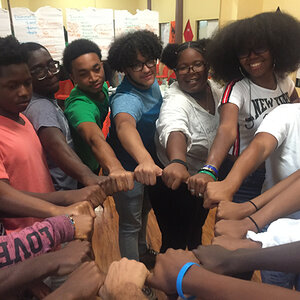Microsoft Commits $500 Million to Create Opportunities for Youth
Microsoft has announced the launch of a new initiative to address the growing "opportunity gap" for some three hundred million youth in more than one hundred countries, including fifty million in the United States, over the next three years.
Through the YouthSpark initiative, Microsoft will invest a total of $500 million — representing both new and existing funds — in youth programs around the world, the Seattle Times reports. As part of the initiative, Microsoft will launch three new citizenship programs: Give for Youth, a global microgiving marketplace focused on raising funds for nonprofits that support youth causes around the world; Microsoft YouthSpark Hub, an online space where users can explore and access youth services, programs, and resources provided by Microsoft and its partners; and Microsoft Innovate for Good, a global online community that enables youth to collaborate, inspire, and support one another while using technology to make a difference in their respective communities.
In addition to an initial cohort of nonprofit partners that includes the Boys & Girls Clubs of America, City Year, Junior Achievement USA, the Network for Teaching Entrepreneurship, and Year Up, programs to be supported through the initiative include Partners in Learning, Microsoft IT Academy, and BizSpark.
The launch of the initiative is not expected to affect the software giant's giving in the Puget Sound area, where the company will continue its support for local arts groups and hospitals.
"The global unemployment rate for workers younger than 25 is 12.7 percent, which is double the rate for the world as a whole," said Microsoft general counsel and executive vice president Brad Smith. "This is indicative of a growing opportunity divide between young people who have the access, skills, and opportunities to be successful and those who do not. We must work together to close the opportunity divide for youth and help secure the future of this generation and the future of our global economy."







